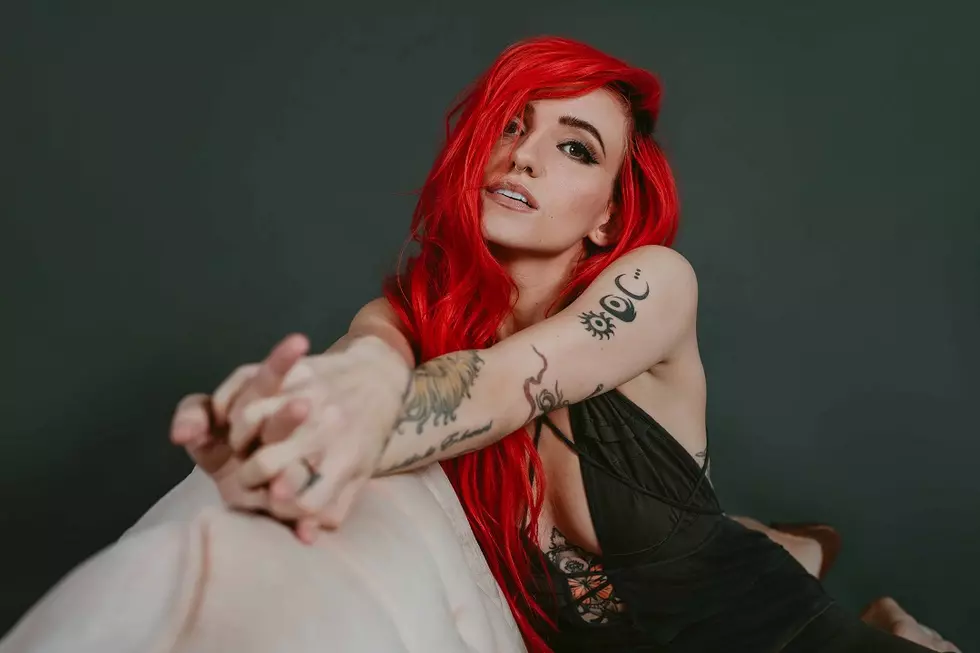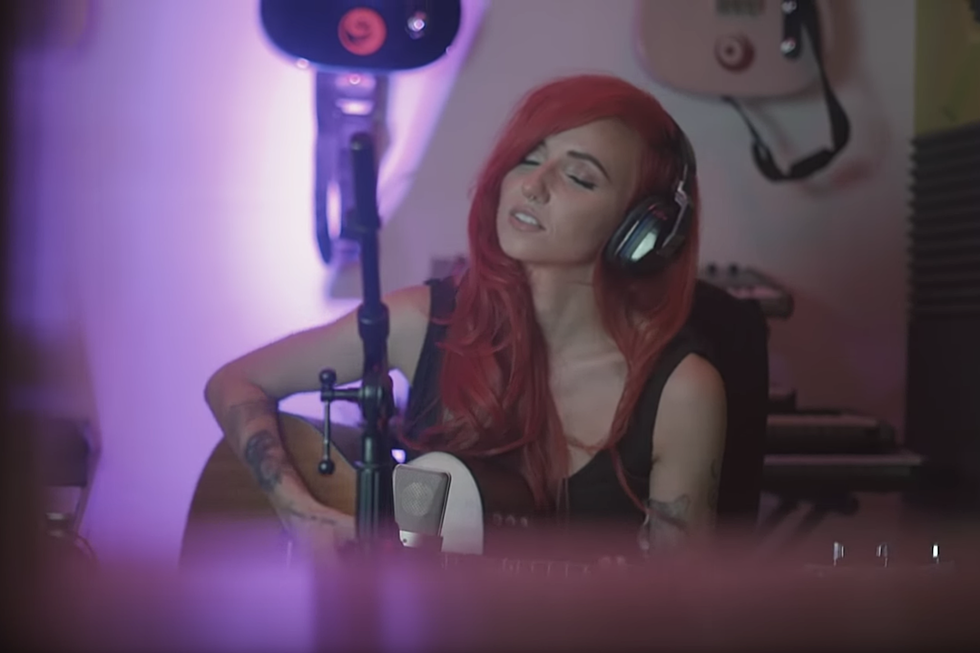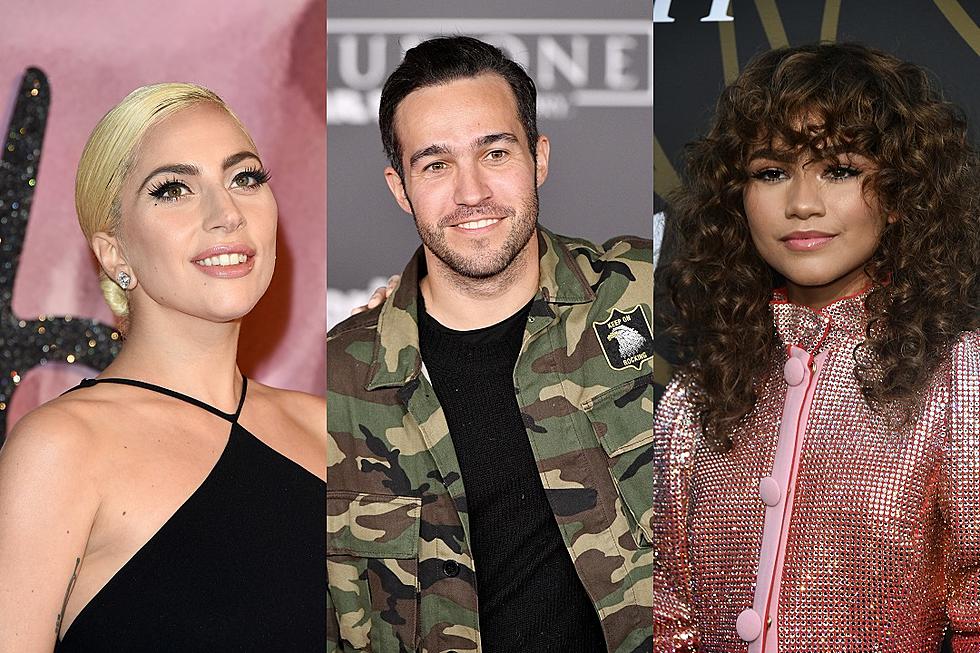
Lights Reveals Why Her Debut Album ‘The Listening’ Is ‘Riddled With Naiveté and Nostalgia’
From its of-the-moment glistening beats and saccharine synths to its hyper-emotional lyrics about young love, growing up and finding one's place in the world, Canadian pop artist Lights' 2009 debut album, The Listening, has remained a heartfelt electro-pop staple for a decade, long resonating with listeners for its relatable themes and refreshingly sincere lyrics.
To commemorate its tenth anniversary (the album was released September 22, 2009), Lights has released an exclusive vinyl of the record for the first time ever, as well as a sentimental new track, "Long Live" featuring Travis Barker, to celebrate the early years of her career, her passionate fanbase and the ten years of inevitable change in-between.
Below, Lights opens up about how she views The Listening ten years on, the importance of taking care of one's mental health, the social and political causes she feels passionate about and more.
The Listening turns 10 this year. Looking back on your debut album, what do you hope the legacy of that record will be?
I have a deep fondness for that record. Honestly, I listen back to that record and I look at the pictures and videos, and I feel like I am a different person. It's almost like I'm looking at a different artist. It's a weird feeling. It's a good feeling. I feel like I've grown so much. I look at little Lights and I'm like, “Who is that?” I don't remember being like that. I just don't remember being in that head-space. It's a good thing because I feel like I've come so damn far; we've all come so far.
When I play those songs now, I play them with a different feeling in my heart then I did then. I was in a dark place those years. I think we all struggle with mental health. I'm out of that place for the most part now and you don't want to have to put yourself back there, but I'm thankful that I was there because it launched the career that I have today.
It's a time capsule where you can look back at your growth, which is a really cool gift.
There was a certain wonderful naiveté I had about songwriting back then which I envy sometimes. It was like, “No rules, just write from your heart. Write the simplest melody and just write straightforward,” and I didn't overthink anything. It came easy in a different way. And I miss that feeling of, like, not caring. Don’t get me wrong: I cared a lot. I cared so much, but I also didn't know that there could be art that people didn't think was good enough. So, I just made whatever, you know. It’s riddled with nostalgia.
Skin & Earth Acoustic was your first time fully mixing an official release. What was that process like?
Technically, the first project I produced and mixed was a Drake cover album. And that was the first time that I had put it out. That wasn't exactly an official release but it gave me the confidence to feel like I could complete the acoustic project. I applied a lot that I learned from that.
Early on, I produced some stuff that was very demo-y quality, so I never had the confidence to finish a project in my studio from start to finish, and then send it off. I have so much more respect for mixers and producers because of the sheer amount of work that goes into finishing it. Usually, I do the creative and somebody else finishes it, but there are so many details in that. When you're mixing a project, it comes down to honing into every breath, making sure that breath doesn't “pop,” gain controlling every "s" sound...
For the acoustic EP, how did you decide which environment to record each song in?
I just spent time thinking about it. Just like any element of any project—most of the work is done thinking. This is funny: I read a quote from a comic writer not long ago who said, "Although it takes me a month or two to write a script, there’s still six months of me having thought about it before I actually sat down and wrote it."
I find that three quarters of any form of creativity is spent thinking about it, so I just had to process the whole project and figure out what locations suited the comic component best. That's why some of the songs didn't make it [onto the acoustic EP]. "Fight Club," for example, I love that song but it takes place in another other dimension, in a tower.. and I can't find that! It's impossible. I would have to go to Morocco and find a tower in a desert. So I had to be realistic about the places that I could record and had to locations. Songs like "New Fears" and "Morphine" both take place in a bedroom [in the Skin & Earth comic], so I had to choose which song of those two to do because you can't do a bedroom twice.
I love how the environment in which a track is recorded can actually add a new dimension to a song.
Not only is it about the actual sonics of the environment, but it's the way the environment makes me feel when I’m tracking. Being out in the desert, I got this entirely different performance than I would have had in the studio. Just the feeling of being out there played into how I sang it, how I performed it on the guitar, the emotion that I'm put into the track. It all played in so many ways and It was a very enlightening experience to be out there and to realize how much the environment affects your performance. We spend 90% of our time in a dead studio making music. How inspiring is that? The environment that you sit yourself in on a daily basis affects your mental state so much more than you think.
The new songs that you included on the acoustic EP, were those originally intended for the studio album or did you record them after?
They were written after. They were just songs I wrote, you know, in my travels or whatever. Most of them were written in hotel rooms, after touring and stuff. That’s when you get the rawest songs. I thought I could save them songs for the next album, or I could just put 'em out. I really liked them and wanted to give them a shot. A lot of the songs I write never really see the light of day.
I probably have a few of those on my iPod...
Yeah, you probably do! [Laughs] Yeah, sometimes they’re never meant to come out, but there's definitely some that are close to my heart. "Lost Girls" was actually written after the fact but … that song was inspired by the comic. It’s a vulnerable song, but I had fun mixing and producing it.
Was there a track on the acoustic EP that was particularly challenging to reimagine acoustically?
Surprisingly, the ones that you think would be the most complicated to do are the easiest. "Savage" was one of the easiest to do. "New Fears" was probably the hardest. There are a thousand ways it could have gone and I just landed on that Red Dead Redemption vibe. [Laughs]
In a way, it's the most Lights album ever, isn’t it?
I feel so much ownership over the whole project. First, getting the whole comic done on my own was a huge piece of confidence, and then finishing the Drake record was another boost of confidence. I was like, “I can do this. No problem.”
Have you considered any other cover mixtapes or even collaboration albums?
Not yet, not really. I think there was some irony in me covering an artist that's so different from me. He’s an artist that I love and who is extremely talented, so it was an easy thing to cover because the songs are good.I don't think that a record like that comes along very often. A lot of collabs people recommend are collabs with artists who are very similar to me, and those are the collabs I'm least interested in. There's nothing exciting about doing the same thing with somebody else. The beauty of collabs is being able to genre-blend and try different things that you never would get to do.
How do you feel now that you’ve signed with Fueled By Ramen?
It’s so exciting, I love them. We haven't made a record together just yet but they definitely support the culture around an artist as opposed to just singles. It comes down to more than just living and dying at radio. I've always been an artist who has this sort of cult, niche fanbase. We have this world together and there are a lot of things in my world that's made up of more than just music.
It seems like Fueled By Ramen supports breeding that culture, and that's an important element of being a fan of an artist and not just being defined by one song. I don't think I've ever been an artist who you can define by one song, there's so much more to it. They seem to really celebrate that kind of culture, if you look at the acts and bands on their label. I think that's really cool, so I'm excited to see how that goes.
How is it different from past label experiences?
It's tough for big labels right now. Music is still in this transitional place where people are just catching up. And unless you're on the top of the world, it's really hard to justify keeping an artist on who cultivates a fanbase more so than a big radio single, you know? And there's like, what? Ten of those artists? It’s very limited.
I think what I love about FBR is like, I can like text the president of the company and crack jokes. It feels a little more intimate and that's a really special thing to have when it's your baby. Everybody on the project cares about it. I’m smart enough at this point in my career to not be like, ‘This is my baby. Nobody can touch it.” It’s a team effort. There are so many people involved and so many minds that I trust to consider their opinion. I think it's really brattish of artists to think that it's all theirs and only theirs, you know?
Do releasing one-off singles like “Long Live” and mixtapes help maintain an artist’s sustainability?
The sustainability between albums, yes. If you can keep producing, then do it. You know, it's not confusing anymore to just put a whole bunch of songs out and then put an album out with new stuff on it, as long as you can make it happen. I'm in this new place. I think a lot of artists are in this time where everybody just wants to consume music. It's like, “Put music up, just keep putting music up!” Because, I do think full albums matter still in a big way, but there's nothing wrong with just putting random songs out too.
Do you get burned out and if so, how do you deal with that?
I used to. Balance is an art form. So, I'll work on music — and I've never been more excited about making music, I'm in a really good place musically right now — and when I hit a wall, I’ll go do art, work on another comic. When I hit a wall on that, I’ll work on music again.
It's important to exercise your artistic muscles for your mental health and for your fulfillment ‘cause as an artist, you're a creator. Your fulfillment comes from finishing stuff and creating things that you're proud of. But art comes in so many different forms and we have so many different facets of our art that if you feel like you can only do one, if you feel like you can stick to a lane, then of course you're going to burn out. You have so many facets! Try them! Let yourself replenish and then get back to it.
Many of the post-apocalyptic themes found across Skin & Earth reflect the things that we're dealing with in the real world today. What are your thoughts on the parallels between the state of the world and the world you’ve created with your album and comic?
There are so many little nods to the troubles I see in the world. I'm not good at talking politics. I'm probably not well-versed enough to speak out, but I do have my opinions and my feelings and frustrations, especially with regards to the environment and sustainability and our lack of taking care of what we have. I think my way of voicing those concerns is through the story and my music.
One of those concerns is that we are going to crash and burn and when we get to the very bottom, we're still gonna take because that’s human nature. Can we influence the younger generations to realize that system is not sustainable? That's the only hope, because the generation before us still very wasteful. The only way is to change the mentality of the planet. That comes from pop culture and everyday influences and infusing those ideas into people's thinking. That’s the importance of the theme of loving Earth and bringing everything back to life; let's take care of this now because this [apocalyptic vision of the future] is what's going to happen if we don’t.
There's also the political element of the powers that be controlling everything. They control the media, whether or not you like it. They control the markets, they control the systems. The comic is probably a more exaggerated version of what we have in the real world right now, but at the end of the day, that's really the way society functions. So, don’t believe everything that you read. Do your research and form your own opinions and critical thinking. That's probably the most important thing anyone can do for themselves.
Pop Stars and the Superheroes They Remind Us Of
More From Mix 97.9 FM
![The Biggest Christmas Celebration In Texas Is In San Antonio [PHOTOS]](http://townsquare.media/site/523/files/2021/12/attachment-IMG_59271.jpg?w=980&q=75)








